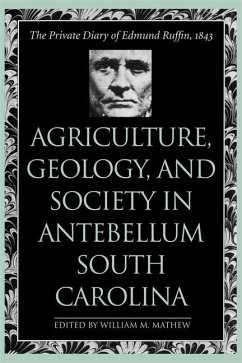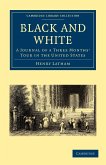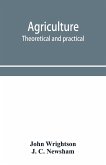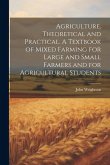The centerpiece of this book is the diary kept by the celebrated agricultural reformer Edmund Ruffin during the eight months in 1843 in which he conducted an agricultural and geological survey of South Carolina. A vivid and highly informative account, the document offers a unique understanding of the state's plantation economy during the late antebellum period. Ruffin believed that amelioration and diversification programs would relieve the agricultural depression of the state and help preserve its embattled system of slavery. At the request of Governor James Henry Hammond, Ruffin examined the different farming methods in use and the resources available for improvement. A published report of 1843 was the formal outcome; the diary was his private running commentary. Beginning in late January, Ruffin's field work took him through scenes of abandonment and desolation, down stumpy cart paths in unfamiliar terrain, and through thickly overgrown swamps, exposing him to severe weather and disease. During his travels through the state, he examined marl deposits, visited numerous plantations, met with agricultural societies and eminent South Carolinians, and even hunted alligators. Ruffin completed his survey by mid-September. This volume goes well beyond mere documentary reproduction. William M. Mathew offers an extended biographical supplement devoted to the prominent South Carolinians encountered by Ruffin, giving special attention to their farming practices and political philosophies. In his introduction, Mathew recounts the preoccupations underlying Ruffin's survey and the reasons why it fell far short of its objectives. The South Carolina agricultural and political leadership operated withonly the crudest of economic ideas: its rhetorical vocabulary of "diversification" and "overproduction" was never refined, and there was little effort to address the apparent contradiction of applying crop-boosting methods to an already inflated cotton sector. Finally, Ruffin found that many planters simply did not wish to bother with the laborious methods that he recommended. The ineffectiveness of Ruffin's reform proposals does not detract from the significant documentary value of his diary. His succinct and pointed narrative, written with intense interest in the lands and customs he observed, recaptures for the modern reader the physical and social environments of South Carolina two decades before the Civil War.
Bitte wählen Sie Ihr Anliegen aus.
Rechnungen
Retourenschein anfordern
Bestellstatus
Storno







